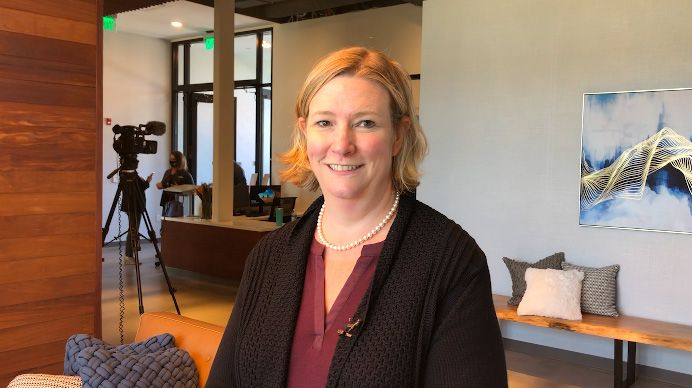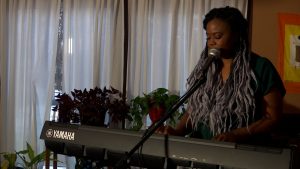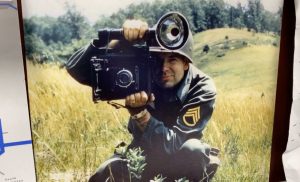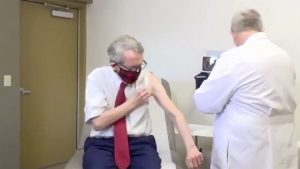CLEVELAND — When the coronavirus pandemic hit, many people were out of work and masks were nearly impossible to find. A Cleveland-based non-profit turned social enterprise found a solution to the problem.
What You Need To Know
- Butter Pear hired six refugee women to sew masks when the pandemic started
- 100% of proceeds from Butter Pear goes back to education in West Africa and Uganda as well as Butter Pear’s programs
- Butter Pear has a youth sewing program where students learn to make masks and clothes
Becky Trout is the founder of Butter Pear, a nonprofit organization. “Butter pear” is the term used to refer to the avocado in Africa.
Trout said her life mission is to help others, so she immediately came up with a way to help a community, which means so much to her, thrive during the pandemic.
“I started finding some refugee women that were in Cleveland that were looking for work, and not only looking for work because of money, but also just something to do and another way to give back to their culture,” Trout said. “And so I contacted six women and they started sewing for us and they were just like sewing around the clock.”
Trout’s passion to help refugee families started about five years ago. After spending time in Liberia, Trout wanted to find a way to bring African artists work directly to the states.
“I figured why can’t I buy directly from these artists, sell it here, and then use that money to give back to different programs like our sewing program and education in West Africa and Uganda,” said Trout.
Trout teaches a youth sewing class as one of Butter Pear’s programs.
“And then, the girls in sewing class were learning also how to make the masks for their families and for themselves,” Trout said. “And so, every mask we were able to sew we were also able to give back another mask to someone in the community.”
“Right now, I’m making a mask,” said Cynthia Igiraneza.
Cynthia Igiraneza is 13 years old and one of the six students in Trout’s sewing class. All of the girls are from east and central African countries.
“My favorite thing about sewing is when like I get to pick what I want to make, and the thing is when I finish and I try it on I feel happy and I feel like I’m proud of myself,” said Igiraneza.
Cynthia’s two sisters, 10-year-old Happiness Irantabaye and 8-year-old Belle Queen Iteriteka are in the sewing class with her. The sisters had a routine: Happiness and Belle Queen cut out the pattern, and then big sis Cynthia would sew the mask together, but Happiness and Belle are both pros on the sewing machine, too, each of them making their own clothes.
“Yesterday, I made this skirt,” Iteriteka said. “It was…it was beautiful and it didn’t take a long time but we made it so never give up.” Happiness agreed.
“I’m making a dress,” she said. “So, I’m still working on it but I think it’s going to turn out pretty good and when it’s done I’m going to wear it so people can see what I made.”
The girls are fearless, focused, and determined. The children of refugees, the girls said being able to sew is a skill they’re happy to be learning.
“I really want to make a jacket,” Irantabaye said. “So after I’m finished making my dress I want to make a jacket for the winter so I can feel warm. My own jacket so I can know I’m the one who did this and it took a lot of work, at least the hard work paid off.”
The sisters said they’ve made masks for themselves, their parents, and their older brother and sister. They said their family is proud of the work they’ve done.
“They really like it,” Irantabaye said. “They like every day, for example, we bring, like yesterday my middle sister she sewed a skirt. So they was [sic] so happy for her because like in my family none of them knows how to sew it’s only us three. Like, they don’t know how to use the machine. So they always be proud of us when we bring something.”
While the girls continue learning to sew, the refugee women are still making masks helping Butter Pear give back to the community.
“And the coolest part about all of that was that the masks, the profits that we got from the masks, all went back to helping with food relief in Liberia, helping with rent relief here in Cleveland, giving jobs to refugees here in Cleveland to keep making the masks,” said Trout.




